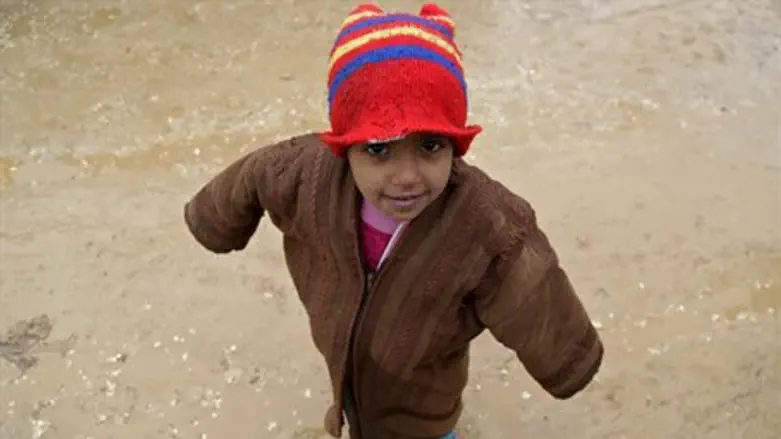
As aid agencies depart to deliver food to Madaya, near the Lebanese border, and two other besieged towns in Idlib province, an estimated 400,000 people are living under siege in 15 areas across Syria, according to the UN.
A deal struck in recent days permits the delivery of food to Madaya, which is currently surrounded by forces loyal to Syrian President Bashar al-Assad and Hezbollah, as well as to the villages of Foua and Kefraya in Idlib, which are under siege by rebel fighters.
An estimated 42,000 people in Madaya have little or no access to food, resulting in the deaths of at least 23 people by starvation so far, according to the charity Doctors Without Borders (MSF). With winter hitting hard that number is expected to rise. The group said that five more people died in Madaya on Sunday, including a boy aged nine.
Al Jazeera said that reports of widespread malnutrition have emerged. Some of these suggest that Madaya residents are eating grass and insects for survival.
In Kefraya and Foua, the al-Nusra Front and other rebel groups have cut off about 12,500 people from access to aid supplies.
'These sieges are war crimes'
Two weeks ago, Syrian government forces sealed off the last road to Moadamiyah, a rebel-controlled town on the outskirts of Damascus. They have demanded that opposition groups lay down their arms. The Moadamiyah Media Office, run by pro-opposition activists, estimates that 45,000 civilians are stuck in the area. The office said that an eight-month-old boy died from malnutrition on Sunday. Dani Qabbani, a Moadamiyah-based media activist, said the child died because of "the crippling siege being imposed by Assad's militias".
"They couldn't help him here in the only field hospital in the city," he told Al Jazeera. "Assad's checkpoints prevented his family from hospitalizing him in Damascus. "If the situation continues for another week, we are expecting a disaster for the 45,000 civilians [in Moadamiyah]."
Sharif Nashashibi, a London-based analyst of Arab political affairs, said that the government-imposed sieges in Moadamiyah and Madaya put rebel fighters under "double pressure".
"These sieges don't just wear down the fighters, it also causes them to see the population around them suffering and raises the concern that the population could turn against them," he told Al Jazeera. "These sieges are war crimes. The government is collectively punishing the population of that area because of the presence of 'enemy' fighters."
In December, the UN reported that the Syrian government and allied militias have also placed more than 181,000 people in the areas near Damascus under siege. These areas include Daraya and Ghouta, as well as Zabadani, which is situated near the border with Lebanon.
ISIS has meanwhile imposed a siege on more than 200,000 people in Deir Az Zor in Syria's east.
